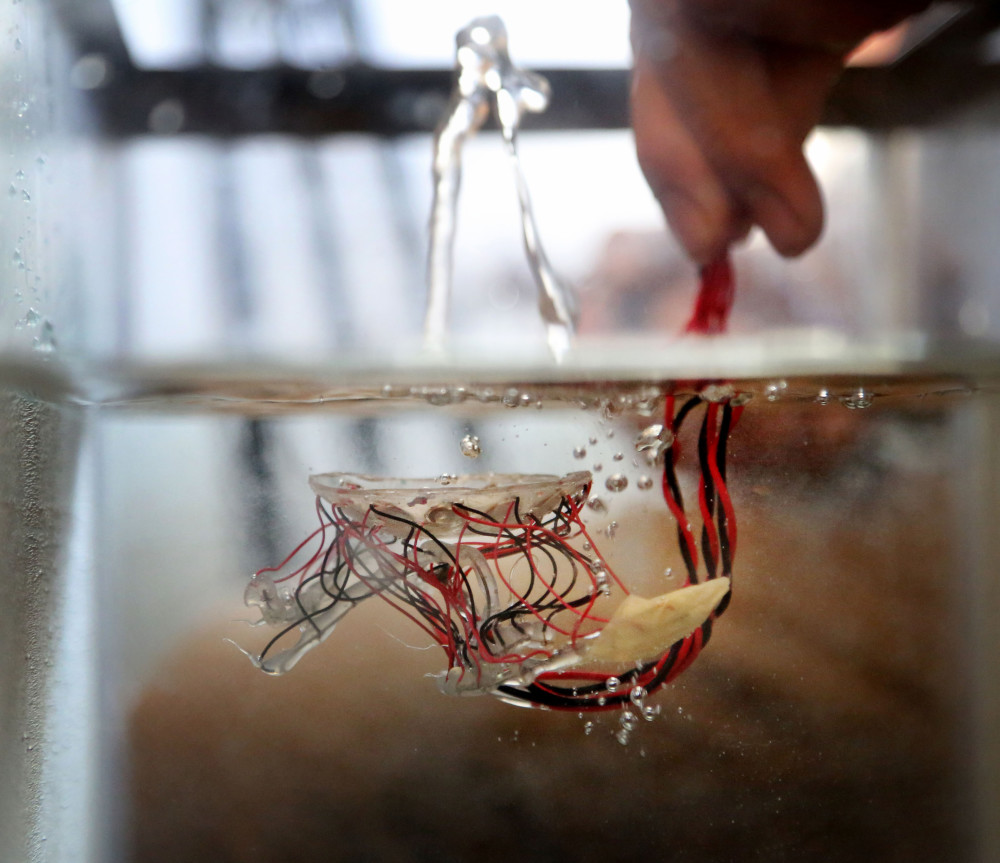By Marissa Wu
Wicked Local Metro, Needham, Mass.
WWR Article Summary (tl;dr) The biomedical careers program at Cambridge’s “Just-A-Start” is helping low- and moderate-income adults in finding employment in science industries.
Wicked Local Metro, Needham, Mass.
Jeannette Hernandez Mateu and Zuriashindril Mega hunch over their notes during a chemistry lecture, but they don’t attend the high school or a local university.
Mateu and Mega are students in a biomedical training program aimed at assisting low- and moderate-income adults in finding employment in science industries.
Many students are immigrants and work in addition to attending intensive classes.
For Mateu and Mega, their days start at dawn, but both believe taking part in the biomedical careers program at Cambridge’s Just-A-Start Corporation is worth it.
“If I got this training and if I equip myself with this knowledge, there is plenty of opportunity for me to be hired,” Mega explained.
The Fresh Pond resident and immigrant from Ethiopia balances her work at Trader Joe’s and the Cambridge Community Learning Center with a full-time education.
Mateu is a Malden resident and single mother from El Salvador. She works part-time for a cleaning company in Cambridge. By going through training, she also hopes to show her daughter that hard work reaps benefits, she said.
“It’s a rigorous program and to balance family, work, and the program,” Mateu said. “But, I’m here and I’m committed to finishing… On the side, I’m teaching my daughter: go to school and get a degree is the best way to have a career and a good life.”
Founded in 1968, Just-A-Start launched the biomedical careers training program 26 years ago, partnering with Bunker Hill Community College and local employers like Biogen and Novartis, according to Gina Plata, director of education and training. Plata said the organization prioritizes diversity for its annual classes of about 20 students.
“From the 18 slots we filled last year, we had student representation from at least 12 different countries, and I think that only two students were native English speakers,” Plata said. She also said the program strives to have women represent 60 percent of the class.
The program is not meant to replace university. Rather, it provides an intensive overview of science courses and laboratory experience, and meets current industry needs, Plata said. In addition to biology, chemistry, biotechnology and digital literacy courses, students also spend time in a laboratory.
A 2016 evaluation by the Center for Social Policy at UMass Boston said the program made “significant achievements,” noting — among other findings — that almost 80 percent of graduates got a job in the field. It also found that students reported their salaries right after graduation at about $38,000, up from $23,000 prior. Ten years out, participants reported an annual average salary of almost $53,000.
Program makes students ‘competitive’
Michael Goodridge, an Arlington resident and alumnus of Cambridge Rindge and Latin School, graduated in 2003 after deciding he no longer wanted to work in cafes. He started as a lab technician at Harvard Medical School, eventually earning additional certification. Goodridge is now at Brigham and Women’s Hospital as an assistant animal facility manager, leading an entire staff.
Goodridge said the program “gives you even more self-esteem because now you feel you’re not only knowledgeable, but you’re actually competitive and marketable.” He echoed other students’ remarks about the confidence boost JAS provided.
Svetlana Bakhtinskaia, a 2017 graduate, said the program prepared her not only for a healthcare career, but for the job application process, thanks to job coaching. She was offered a position at Newton Wellesley Hospital just before graduation and is now a technical lab assistant.
Bakhtinskaia said the preparation at JAS made for a better experience. Before joining the program, she had been applying to jobs and doing poorly in the interviews.
“I was stumbling and didn’t know what to say,” she said. “But this time … I knew everything.”
Marissa Wu is a Boston University journalism student writing as part of a collaboration between the Cambridge Chronicle and BU News Service.
For more information about this program, visit justastart.org.














































































































































































































































































































































































